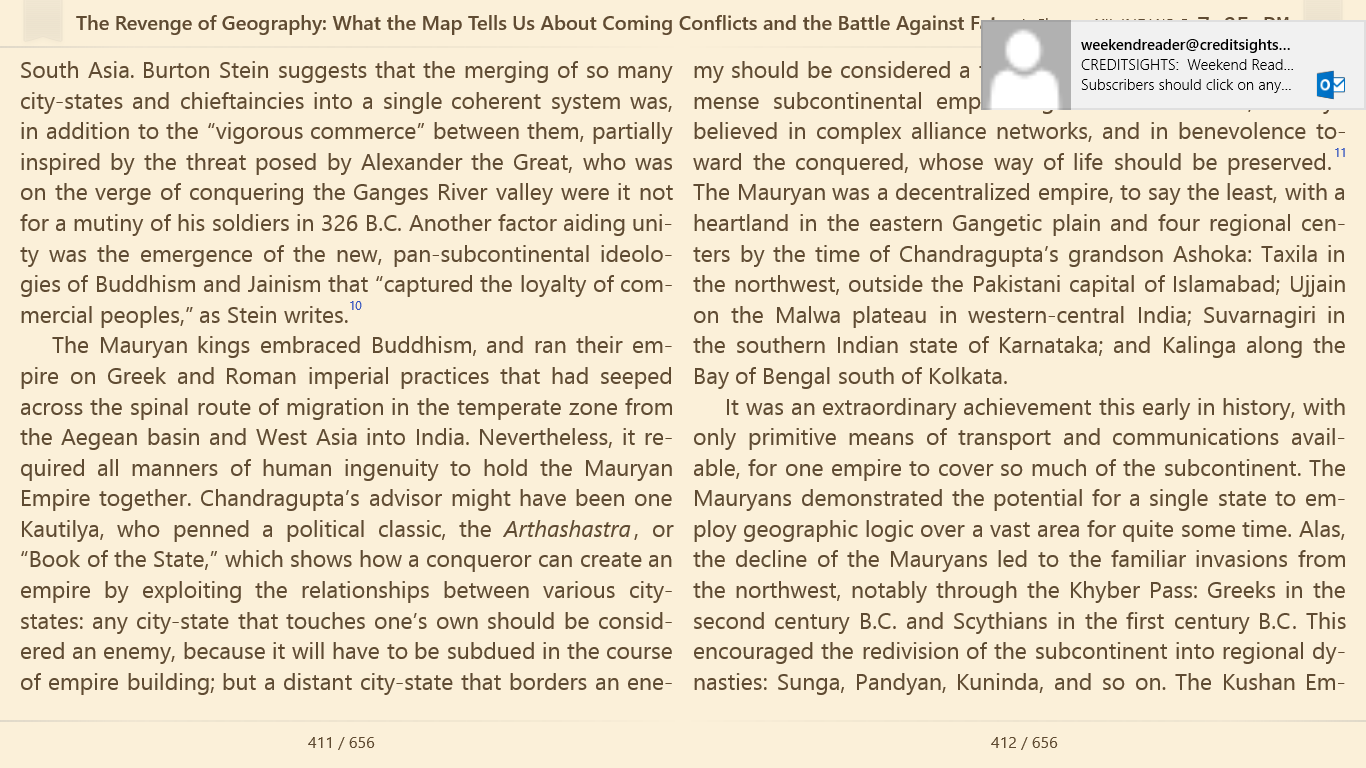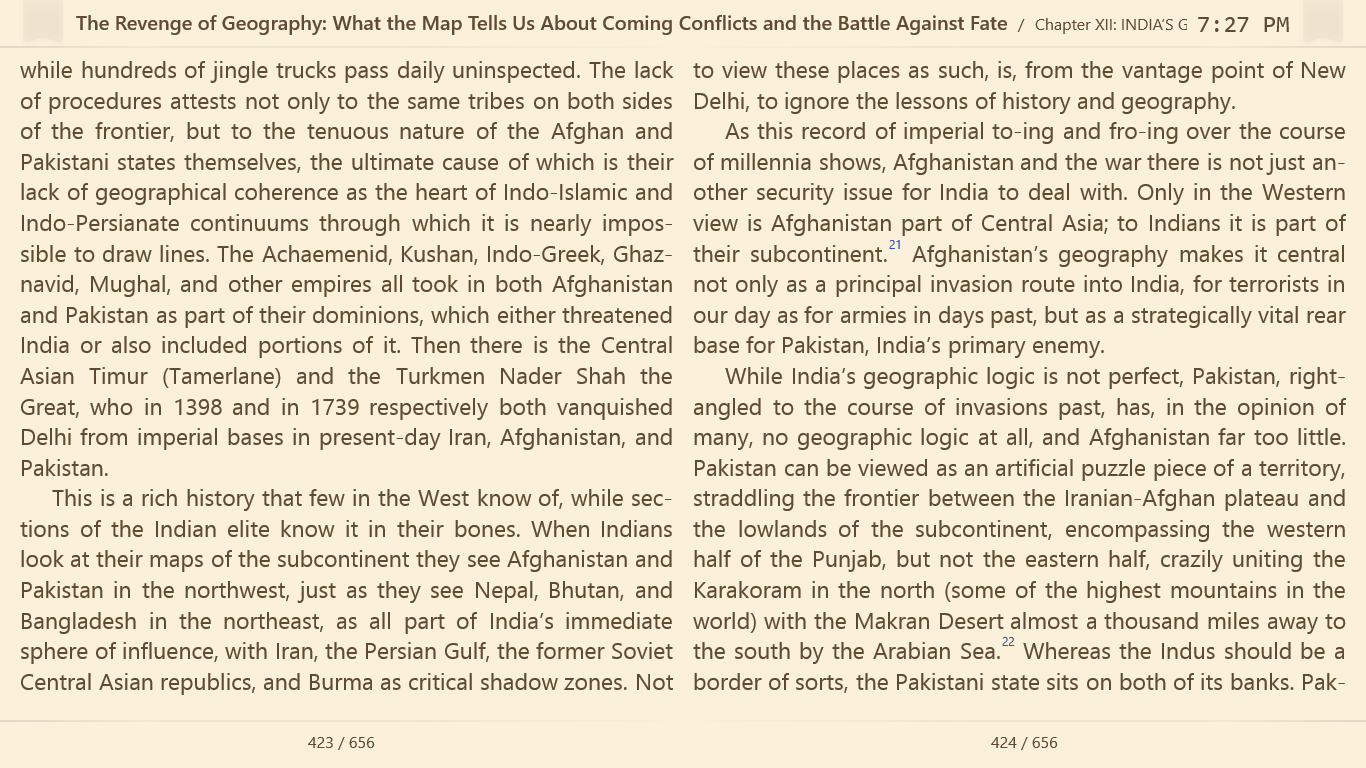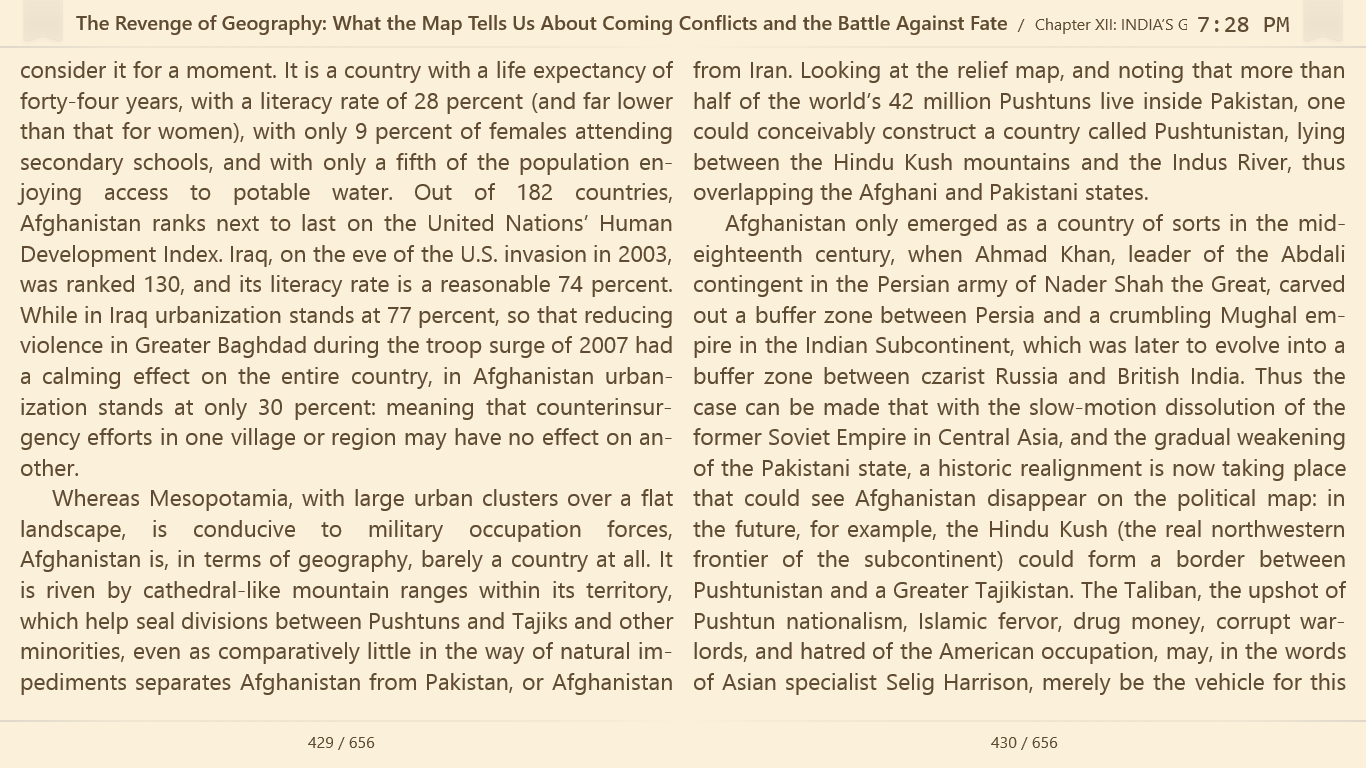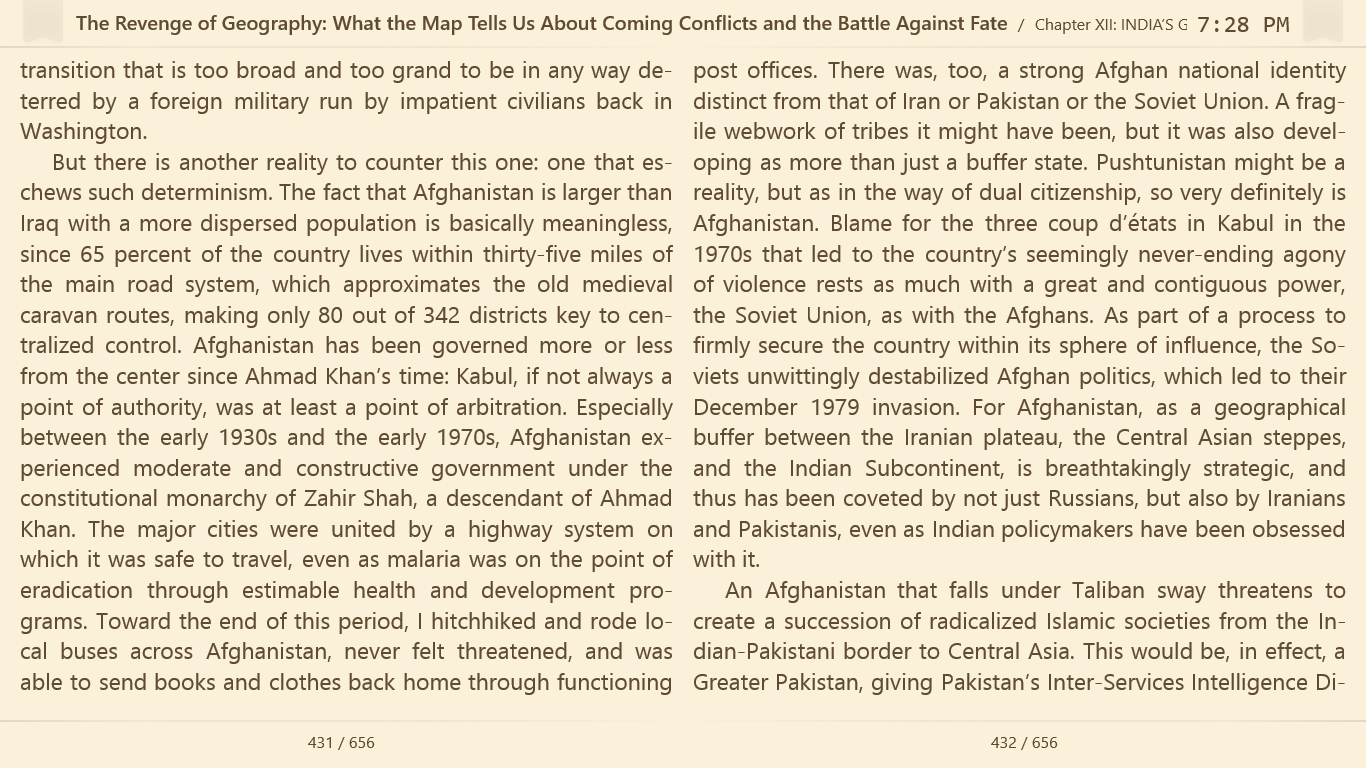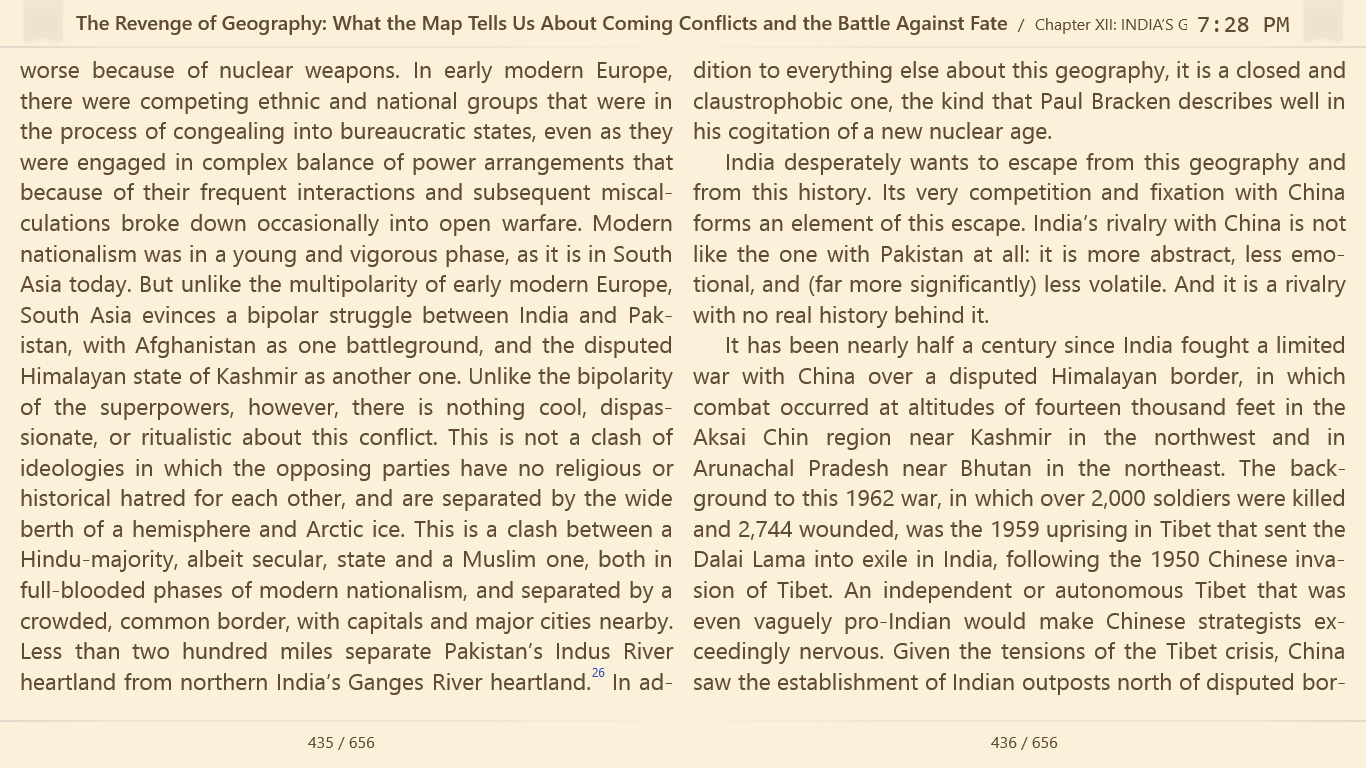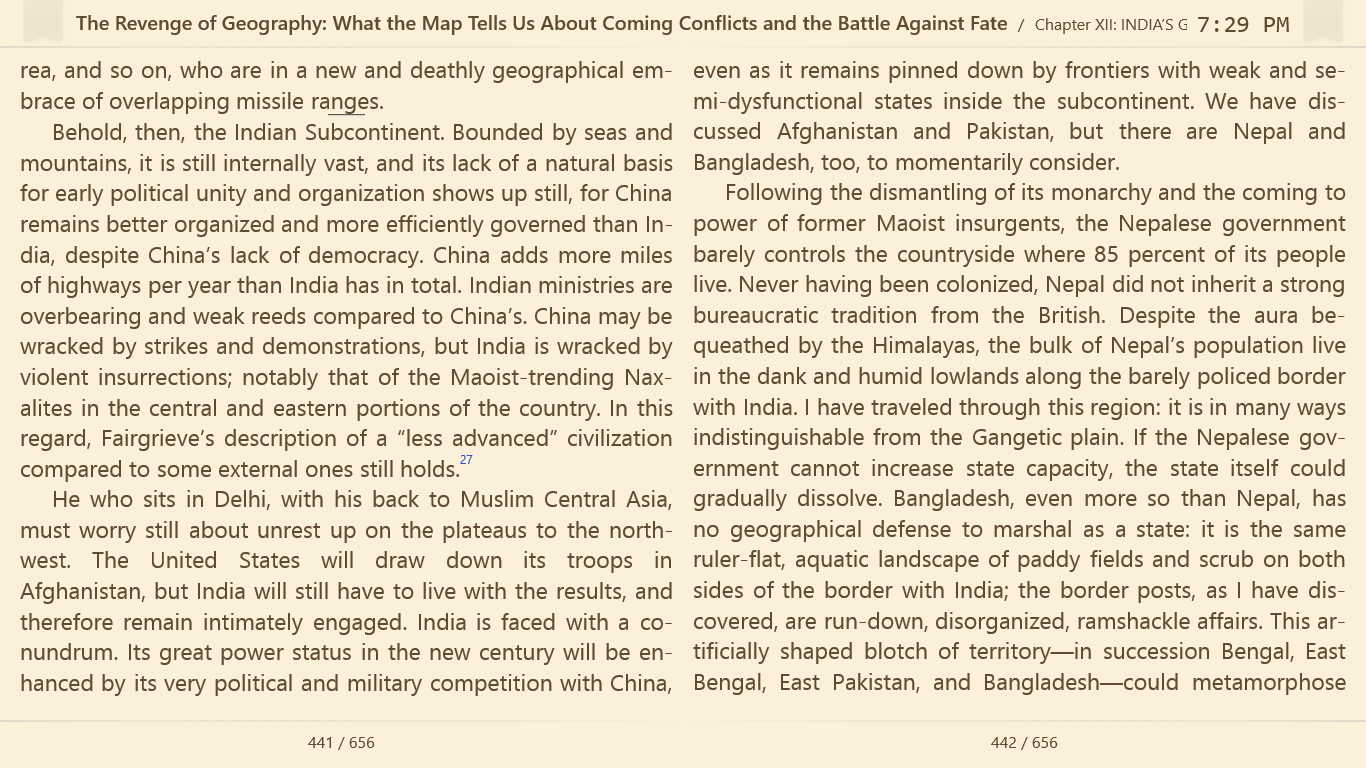Interesting thoughts about on Sanskrit and how Indian civilisation was essentially a lowland phenomenon.
Month: February 2014
Institutional Racism affects Sikh Marathon Runner
http://espn.go.com/espn/story/_/page/Fauja-Singh/fauja-singh-runner
– Harmander Singh
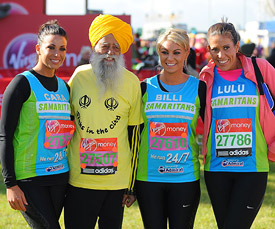
Christopher Lee/Getty Images
Pakistan; negotiations and operations..and Islamicate rationality
first published in 3qd http://www.3quarksdaily.com/3quarksdaily/2014/02/pakistan-negotiations-and-operations-and-islamicate-rationality.html#more
- The British-Indian colonial state, much decayed as it may be, is still light years ahead of any “system” Maulana Samiulhaq and his madrassa students can throw together. Tariq Ali’s anti-imperialist warriors have no viable modern political system or institutions to draw upon and nothing to offer except beheadings and endless sectarian warfare. There is no there there. The state possesses a modern army and a semi-modern postcolonial state. Its leaders may not fully understand what they have, but they do have it. They can still defeat the Taliban with both ideological hands tied behind their back. Of course it won’t be easy and it certainly won’t be pretty. The Pakistani state’s efforts may not be as vicious as the Sri-Lankan army’s campaign against the Tamil Tigers, but the human rights violations and collateral damage will be no picnic (for more on this, see my Pakistani liberal’s survival guide).

- As the Pakistani army is forced to confront the particularly vicious groups gathered under the umbrella of the TTP, it will face a period of determined Islamist terrorism. But this is not the last wave of Islamist terrorism they will have to face. Two large reservoirs of terrorists are yet to commit themselves fully to a fight against the Pakistani state (or perhaps it would be more accurate to say that the state is yet to commit to fighting them); one is the anti-Shia terrorists of the Lashkar e Jhangvi, whose front organizations (ASWJ) and networks of madrassas still operate without hindrance in the country and especially in Punjab; and the other are the various Kashmiri Jihadist organizations that remain on good terms with the army.
- Of these two groups, the LEJ is in a very unstable equilibrium with the state. While some in the LEJ and some in the state security apparatus (and the right wing political parties) continue to behave as if anti-Shia mobilization can coexist with a nominally inclusive Pakistani state, this is not really a viable strategy. When push comes to shove (and it’s getting dangerously close to the shove state) the Pakistani state will have to opt against the LEJ. Tolerating their brand of Shia-hatred is fundamentally incompatible with the continued existence of semi-modern Pakistan. So, like it or not, the state will find itself having to confront the LEJ’s front organizations at some point and when it does so it will face an especially unpleasant round of terrorism.
- The second reservoir of Islamist terrorists (the Kashmiri jihadists) has been kept relatively quiet by promises that the glorious jihad will restart in full once America leaves, but that too is not a viable long term policy. India, for all its incompetence, is not such an easy target any more. The days when Benazir could wish to see Jagmohan (governor of Indian Kashmir) converted to “jag jag mo mo han han” (i.e. broken into little pieces) were the high point of that whole strategy. India survived that point and by now, those days are long gone. Some in the deep state may not realize it yet, but just like they have had to give up on so many other Jihadist dreams, they will also have to permanently abandon their Jihadist dreams in Kashmir. And when the deep state finally comes to that point, the remaining LET and Jaish e Mohammed cadres will have to choose between a life of crime and open warfare against the state. Many will undoubtedly become kidnappers and armed gangsters, but some true believers will opt to fight. It is likely that many of them will make common cause with TTP terrorists and LEJ (beyond the connections that already exist). Islamist terrorism, in short, has not yet peaked in Pakistan. There are at least two more waves to come even after the current TTP-sponsored wave passes its peak. There is also the possibility that these three waves may more or less combine into one in the days to come.
- The state will fight several groups of Islamist fanatics, but that does not mean it will become liberal or convert to Scandinavian style Social democracy. Warfare with the Islamist terrorist groups may still co-exist with attempts to outflank them by imposing sharia in some places and by pretending to be extremely anti-Indian and anti-American in others. Democracy and human rights will also suffer as they do in any state fighting an internal enemy. Crude suppression of Baloch and Sindhi nationalism will continue apace. Crony capitalism will become nastier and cruder than ever. Subject to the same pressures as the rest of planet earth, there will be more mixing of the sexes, more singing and dancing, and more semi-naked women being used to sell hamburgers and car-insurance, but many other trends will be unpleasant and will be unfair towards the weaker sections of society. These problems are, of course, not unique to Pakistan. These are the problems common to many of the artificial postcolonial states of the “developing world”. But it’s worth keeping in mind that the self-inflicted Islamist wound is not our only (or even our biggest) problem. It just makes it extra-hard to focus on all the other problems that also have to be solved.
- Still, there is a certain window of opportunity for mainstream liberal/secular parties (liberal in the Pakistani context. Obviously not by Western or even East Asian standards). Even though the deep state is still using the CIA-RAW conspiracy against Islam as its main tool to motivate its own soldiers and remains fixated on “failed politicians” as the be all and end all of Pakistani incompetence and corruption, it will inevitably find itself standing closer to the hated PPP, MQM and ANP when it comes to fighting the Jihadist militias. Its old favorites in the religious parties, favored as recently as in Musharraf’s so-called “enlightened moderate” era, have too many ideological sympathies with the Taliban. While personal links, past usefulness and shared antipathies still sustain links with the Jamat e Islami and various JUI factions and the dream of using “good jihadis” against Baloch nationalists and in various foreign policy adventures) remains alive, practical necessity will force a slight rethink. This gives the “secular” parties a fighting chance to step forward and grab the initiative. All three (PPP, MQM and ANP) have made some efforts in that direction already, but they need to do much more. Pakistan’s small, but culturally disproportionately significant, old-guard left may also get a chance to enlarge their space and regain a little of the initiative they lost decades ago to the religious parties. Taking advantage of this opportunity is critical and both the “mainstream secular parties” and the old-guard Left must make the most of it.
- Unfortunately, in this task (of stepping forward, making alliances and grabbing political space from the religious parties), the left-liberal intelligentsia will be hampered by opportunity cost imposed by the unusual penetration of ideas from the academic and elite sections of the Western” Left” into the South Asian intellectual elite. Their numbers are small and luckily most are not active in real-life politics, but their cultural and academic presence is not insignificant and they will do some damage. After all, there are only so many bright young intellectuals within the ruling elite who are temperamentally inclined towards liberal ideas. If 35% of them are sucked up into a universe where they read Tariq Ali, Pankaj Mishra and Arundhati Roy for political advice (not just for occasional insights, interesting information, entertainment or commentary on our absurd existence), well… you do the math.
Something like that. This is just off the top of my head, and I look forward to enlightening comments, arguments and questions. My line of thought may become clearer (or even change) as the argument progresses.

Playing fields of Peshawar
A spokesman for militant commander Mast Gul, once acclaimed in Pakistan for his role fighting Indian rule in Kashmir, has claimed
responsibility of a suicide attack at Iranian consulate in Peshawar
which killed two paramilitary soldiers and wounded ten others on Monday.
“We sent a suicide bomber to target the Iranian consulate and Iranians inside the building,” the spokesman told Reuters. “They unfortunately remained safe. We will continue to target Iranian
installations and the Shia community everywhere,” he added.
With talks on a sticky wicket, the interior minister said Monday that cricket could offer hope.
“I have information that the Taliban keep an interest in cricket. So
if this message can go through to them, we can have a cricket match with
them which can have a better result,” he told reporters in Islamabad
following an exhibition game. “The Taliban follow the Pakistan cricket team with keen interest so this can be a platform.”
But speaking to AFP by telephone from an undisclosed location,
Taliban spokesman Shahidullah Shahid said his group would refuse to play
ball. “These secular people want to distance our youth from jihad and
Islamic teachings through cricket. We are strongly against cricket and
dislike it,” he said.
regards
India 2014
Again the way I read the polls, Congress will do very poorly in North and West (Bihar and UP will be critical for the BJP), however it may get a few seats in the North-East. The bulk of the Congress seats will come from the south- Kerala, Karnataka and Telangana. This will make the transition of Congress from a pan-India party to a South Indian party complete.
That said it is instructive (and amusing) to see Big Brother monitoring the 2014 elections (in their usual soft-footed, light-touch manner). The piece below says a lot (even when it says little), for what it is worth polls were quite accurate in the most recent round of state elections. In my opinion, BB is unsure about the rise of the BJP, on the one hand they cant be happy about an assertive Hindu majority (kind of like the Muslim Brotherhood part II), on the other hand they are probably interested in new business opportunities. Again my feeling on this is if NaMo does come to the throne, he will push for China over America and this will be a nightmare all the way around (but may be good for regional stability). I conclude that a lot many people are deeply interested in what happens in India following the 2014 polls.
The sudden thaw in the relationship comes as India heads into the 2014 Lok Sabha (Lower House of Parliament) elections to be held this April and May. Modi’s Hindu-nationalist Bharatiya Janata Party (BJP) has
named him as its candidate for prime minster should the BJP gain an
electoral victory. By meeting with Modi, American officials are
signaling that they view a BJP victory in the coming elections as a real
possibility, and are hoping that they can improve the damaged
relationship with Modi as much as possible prior to the election.
Unsurprisingly, U.S. officials and India watchers around the world
are closely monitoring the torrent of election polls and public opinion
surveys streaming out of the Indian media to see where the BJP stacks up
against its rivals as the elections draw near.
regards
Don’t cry for me, Parsi
Iran’s geostrategic importance
The bounds of decency
Incidentally this is the same claim of normalization/vindication for Narendra Modi (who in my book is much more obnoxious for having used the powers of the state to terrorize people). The electoral victories that the people of Gujarat have bestowed on him carry more authority that any number of court verdicts.
Hear is Harithra, daughter of Nalini and Murugan who is making the case for the release of all the gangsters
In yet another emotive appeal to AICC president Sonia Gandhi and her children, Rahul and Priyanka, Harithra, the 22-year-old daughter of Nalini and Murugan, convicted in the Rajiv Gandhi assassination
case, has sought the release of her father. If they helped to get back
her father, they would be hailed as saviours, she said..…The recent letters were written in the wake of the
Supreme Court order commuting the death sentence of the three convicts,
Murugan, Santhan and Perarivalan, the subsequent decision of Tamil Nadu
chief minister J Jayalalithaa to release them, and the apex court’s move
to stay their release. Harithra said her parents have been behind the
bars ever since she knew about them. “When I was mature enough to
understand the world around me, I’ve heard people talking about the
heinous assassination of Mr Rajiv Gandhi. Now I truly understand that
the incident is one of the most tragic and devastating moments of Indian
history,” she said. It seems no one cares for the bombing victims who were also Tamils.
“Where is the justice for the bereaved families after
all these years,” asked S. Abbas, who lost his mother Shanthini Begum in
the Sriperumbudur blasts. Of the 15 other victims of the blast, five
were Congress workers while and 10 were policemen, including nine from
the State force…..“We are not advocating death penalty
but we want those convicted by the highest court of carrying out a
heinous act to undergo the punishment meted out by the court. They
cannot be allowed to walk scot free,” said ‘League’ M. Mohan, whose
Congressman father ‘League’ P. Munusamy was one of the victims.
I am anti- death penalty and applaud the Supreme Court decision for rescinding the same but I worry about what broader message that this campaign is sending. In the future the only form of retributive justice that will be available will be mob justice (while the petty politicians will plead ignorance and innocence). regards
Why Islam Haunts India
I’ve been able to get the chapter on India (Iran is the following one). I’ll post it when I get it. It is simply the must-read on geopolitics and the Subcontinent; Robert Kaplan is a genius. The photos aren’t exactly clear (I forgot my smart phone in SE Asia) but it’s still readable.
This chapter almost made me miss my flight even when I was next to my Gate, it’s that informative.
On my facebook I have created an album called Why Islam haunts India where I have captioned each picture with the salient sentence.
Is Pakistan the reason why India is not yet a Great Power?
I was rifling through Bangkok Airport (which is just amazing) on the long transits back to Africa and I saw George Friedman’s book, the Next 100 Years, which simply seemed fantastical (in one scenario Turkey, Japan & Germany wage war on the US, Poland & UK in 2050 after the collapse of Russia).
Anyway as I crossed over to the next bookshop close to my departure gate I saw The Revenge of Geography of Robert Kaplan.
Now Robert Kaplan (along with Huntington, Asimov and maybe Bernard Lewis) are huge intellectual influences on how I perceive the world. I became far more of a geographical determinist my Eureka moment happened what a decade ago when I chanced on this article by Robert Kaplan, Roman Africa.
To get to my main point when I was in South East Asia (and ironically Razib had a very good post up on Cambodian genetics at around the time I was in Cambodia) I realised that Hinduism and Buddhism have usually been having a fairly fratricidal relationship over the millennia. However the Hindu Right pays almost no attention to Buddhism but instead subsumes it into a brotherly Dharmic ethos even though Bhutan, Sri Lanka (which are admittedly more ethnic than religious conflicts) and even Pakistan in the deep past (apparently Bangladesh and Pakistan had strong Buddhist history before re-Hinduisation; correct me if I’m wrong).
Around the time I was pondering this though that why do India focus so much on Pakistan and Islam when frankly South East Asia and the Indian ocean is the grand prize. Furthermore India is almost an uncontested power (after all the historic name was Indo-China for the Asean region) but still seems bedevilled by playing power politics in Central Asia, Kashmir, Afghanistan & Pakistan.
Robert Kaplan almost perfectly answered my question as to the overwhelming strategic role Pakistan plays in India’s security. I had unfortunately forgotten my iphone so I would have scanned the whole chapter (it’s that good) so instead I’m going to excerpt from a few other pieces of Kaplan’s:
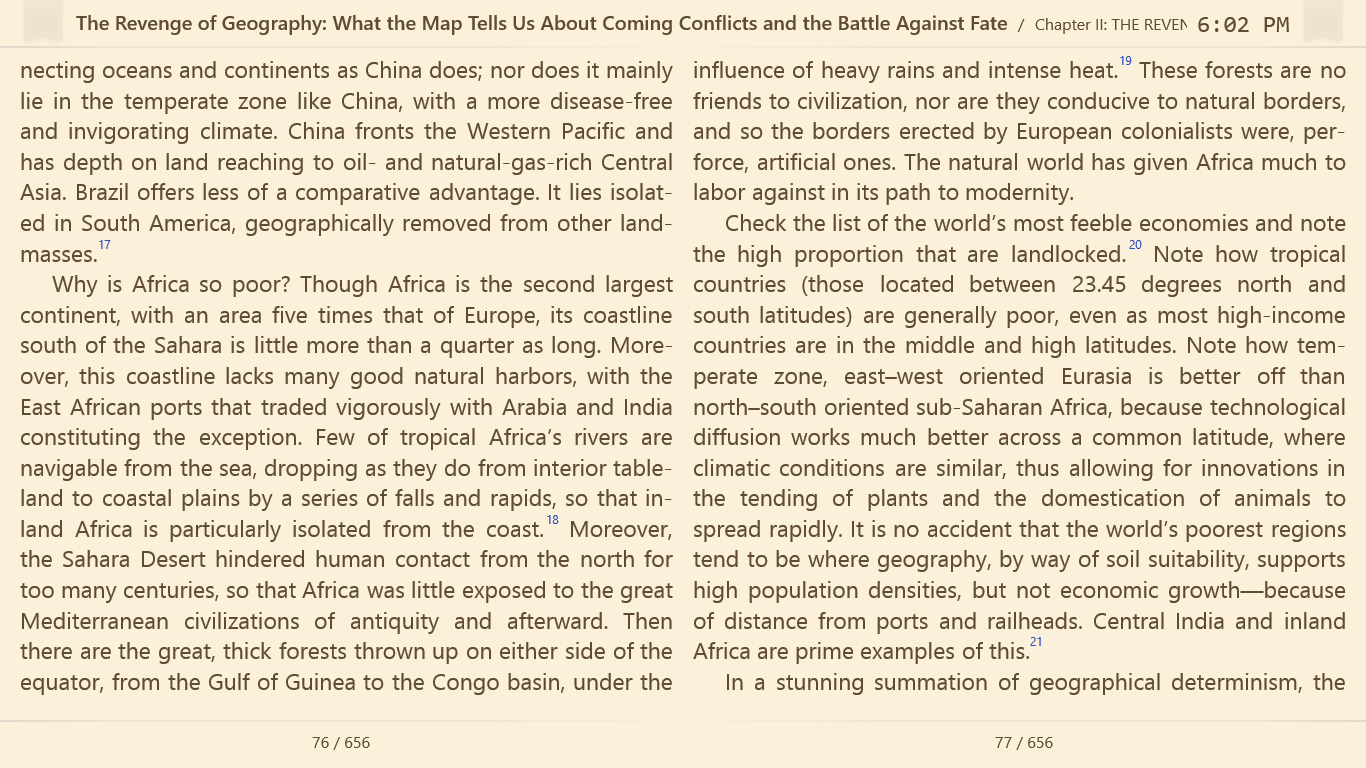.png)
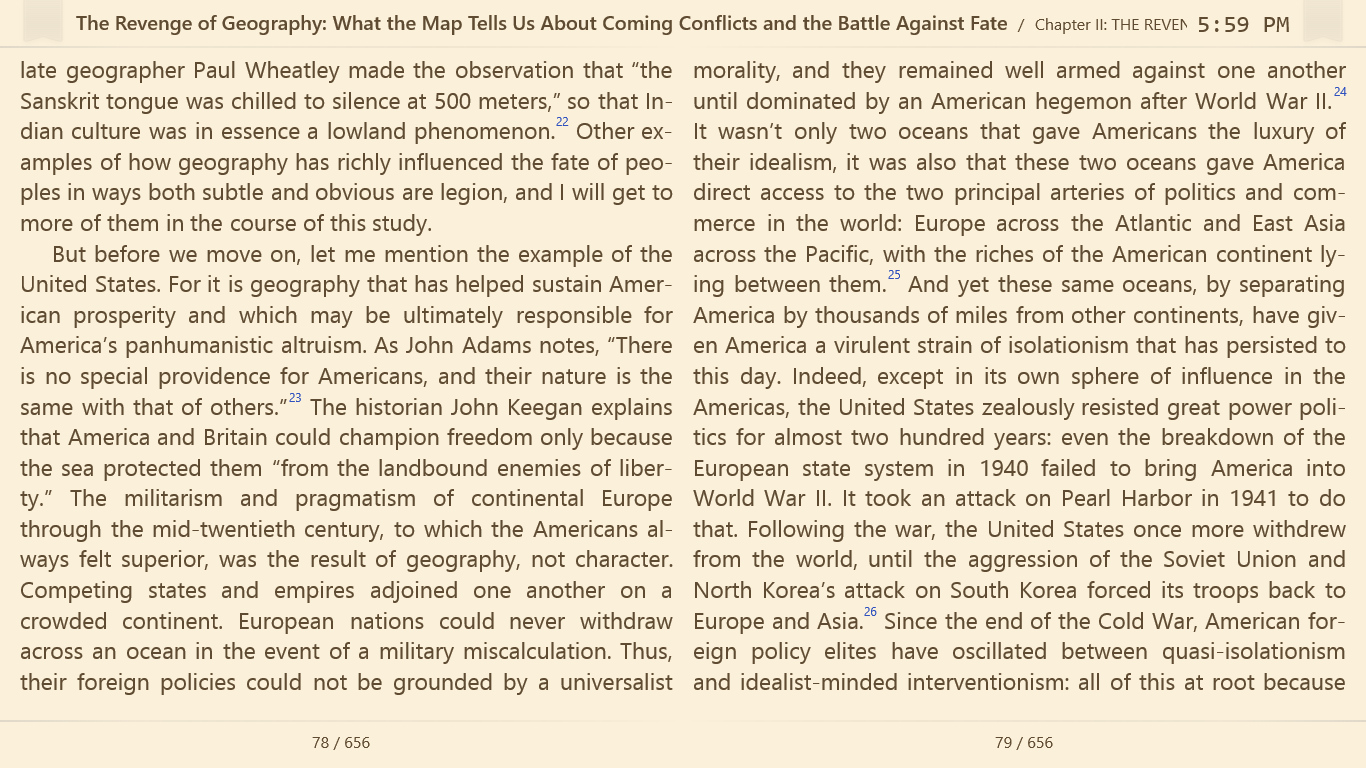.png)
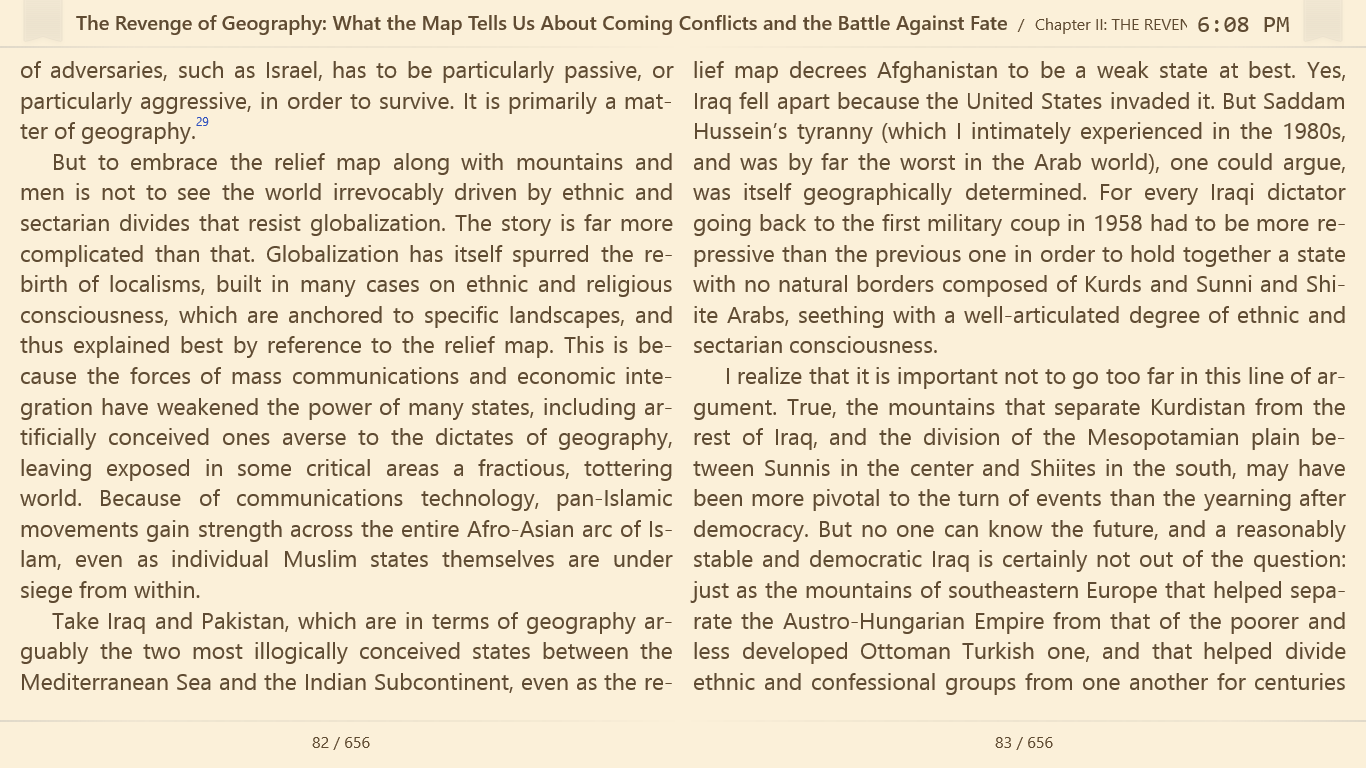.png)
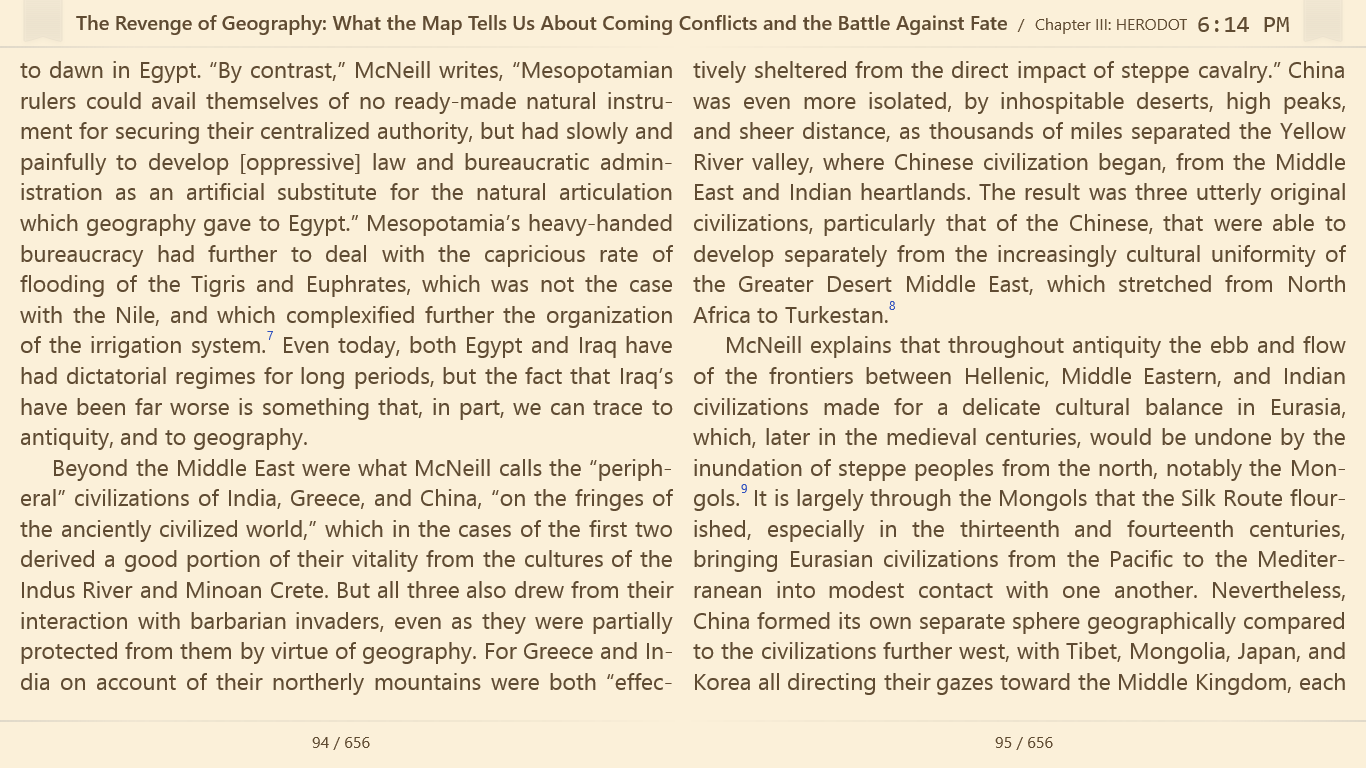.png)
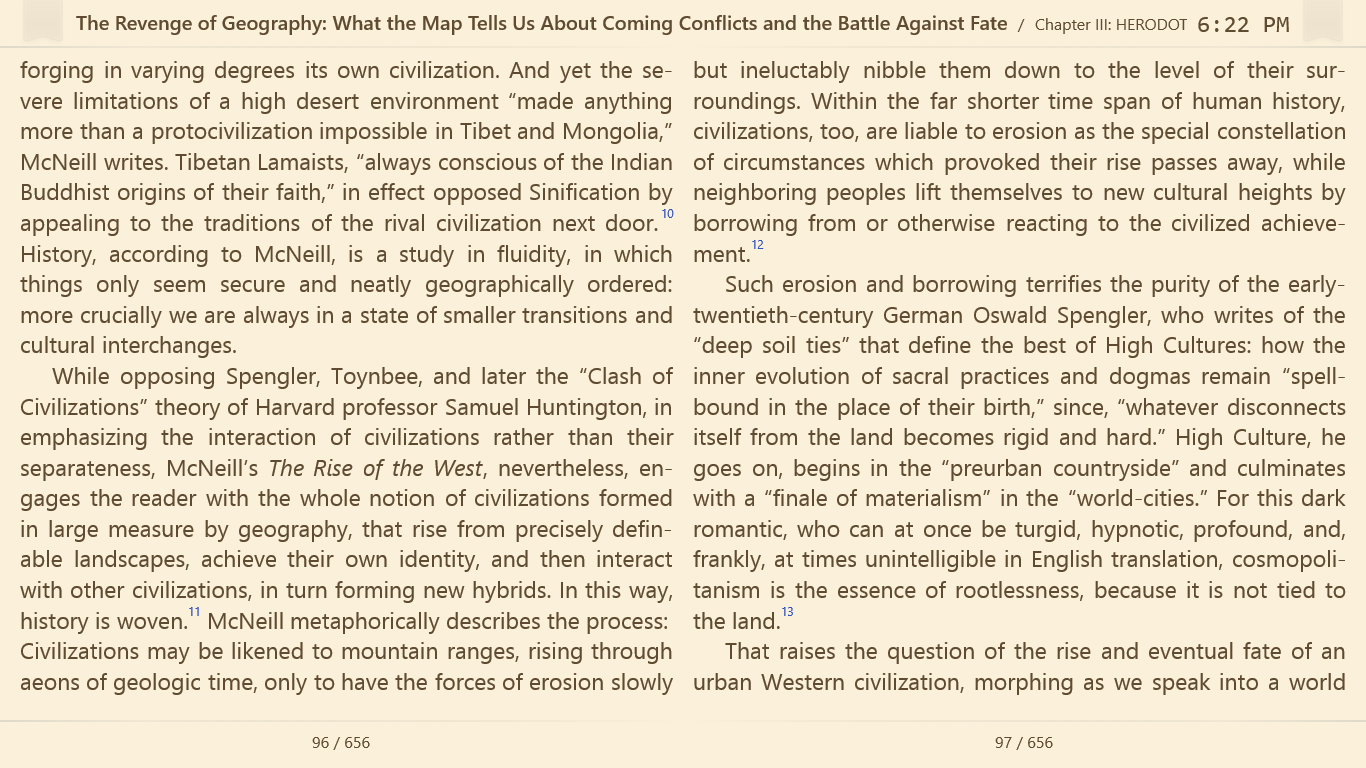.png)
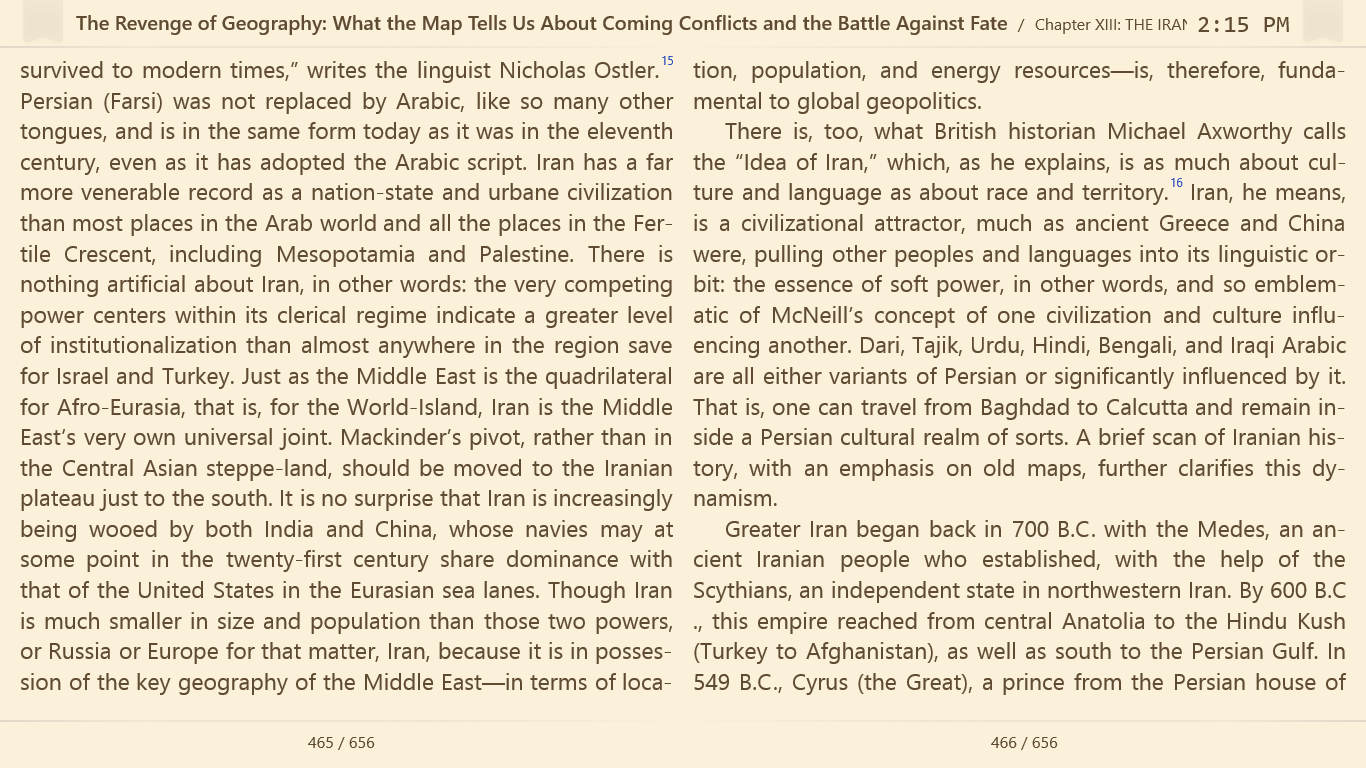.png)





